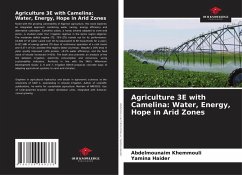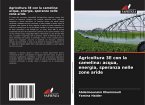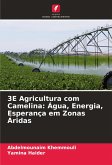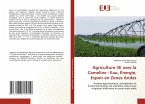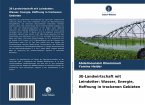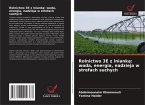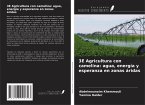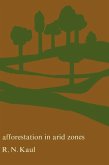Faced with the growing vulnerability of Algerian agriculture, this book explores an integrated approach combining water saving, energy efficiency and alternative cultivation. Camelina sativa, a hardy oilseed adapted to semi-arid zones, is studied under four irrigation regimes in the Aurès region (Algeria). The moderate deficit regime (T2, 75% ETc) stands out for its performance: 16,000 m³ of water saved over 40 ha (equivalent to 60 households for a year), 8,421 kWh of energy gained (70 days of continuous operation of a cold room) and 4.27 t of CO2 avoided (five Algiers-Dakar journeys). Despite a 20% drop in yield, quality improved (+8% protein, +8.2% water efficiency), and the feed value of oilcake increased (+41%). The book also presents an analysis of the link between irrigation, electricity consumption and emissions, using sustainability indicators. Perfectly in line with the FAO's Millennium Development Goals: 2, 6 and 7, Irrigation Deficit proposes concrete ways of adapting agricultural systems to semi-arid climates.
Bitte wählen Sie Ihr Anliegen aus.
Rechnungen
Retourenschein anfordern
Bestellstatus
Storno

